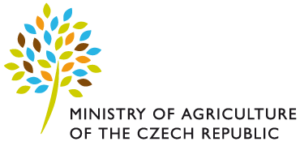The first occurrence of African swine fever in history has been confirmed in the population of wild boars in the Czech Republic
Testing has proven the disease in two dead wild boars in the Region Zlín. The source of the disease, as well as other circumstances, are under investigation performed by the State Veterinary Administration of the Czech Republic (hereinafter referred to as the “SVA”) currently. All age categories of domestic pigs and wild boars can by infected by the disease agent; however, the disease is not transmissible to humans
or other animal species.
The SVA is currently preparing emergency veterinary measures. Based on these measures, a zone (so called “infected area”) will be established around the place of finding of the animals. In the zone, a ban on hunting of wild boars will be applied and the monitoring of wild boars will be intensified. At the same time, a census of all domestic pigs kept in the area will be performed and keepers will have to notify all changes in the health state of domestic pigs. In addition to that, they will have to inform the relevant Regional Veterinary Administration (hereinafter referred to as the “RVA”) on any planned domestic slaughtering of domestic pigs.
“It is obvious that our veterinary administration operates effectively since it has quickly detected the source of the disease. For the present, we have a reason for watchfulness but not for excessive fears. If the disease spreads after all to commercial holdings, we would require especial compensations for losses of profit of our keepers from the European Commission”, said the Minister of Agriculture, Mr Marian Jurečka. “All measures taken are aimed particularly at the prevention of intrusion of the disease to holdings keeping domestic pigs”, added the Director General of the SVA, Mr Zbyněk Semerád.
In accordance with legislation which is currently in force, an expert group consisting of veterinarians, hunters, experts in animal diseases, as well as experts in wild boars, will be established. The group will assist to the relevant RVA at the analysis of animal disease situation, defining of infected area and implementation of eradication plan.
ASF is an acute, highly infectious disease of pigs similar to classical swine fever. It is characterised by a high, almost 100%, mortality. Warthog (Phacochoerus aethiopicus) was the original resource of the disease from which soft ticks of the Ornithodoros genus were infected. The disease manifests by a high fever up to 42 °C which can, according to the course of the disease, last even several days. First signs appear at the decline in the temperature. Animals show lassitude, breathing with difficulties, loss of appetite, haemorrhagic diarrhoea and vomitus. In the population of wild boars, the virus is spread in particular by a direct contact but also by feed, water and articles.
Since African swine fever is a dangerous contagious animal disease, binding rules apply at its occurrence in the territory of an EU Member State. As any other Member State, the Czech Republic will have to send within 90 days after the confirmation of the first case to the European Commission a plan of measures for the eradication of the disease in defined infected area.
African swine fever has for several years been present in certain countries of the former Soviet Union, in Baltic states, in neighbouring Poland and lately also in Ukraine. Already from seventies of 20th century, it has been also present in Sardinia from which, however, it does not spread elsewhere. Totally 467 samples were tested serologically and virologically to the end of the year 2016, all with negative results.







